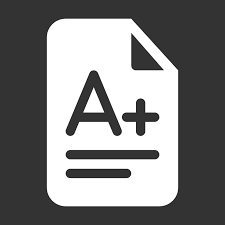This course offers an introduction to chemistry through a series of lectures that introduce the process of a chemical reaction and the elements involved in chemical reactions. These lectures focus on explaining chemical reactions and how these can occur in the laboratory or in the real world.
In the lectures, students will learn the chemical properties of the substances being studied as well as the basic theory and background knowledge of chemical reactions. They will also gain hands-on experience through lab activities where they will have to make their own samples of substances they are studying. Finally, students will be presented with their assignments and be given the opportunity to submit them for feedback from their instructor.
After completing the lecture series, students will be expected to complete lab activities to demonstrate the type of reaction that they learned. In the lab, students will need to create their own chemicals, and then experiment on them to see if they produce a reaction that they learned about in class. They will be able to do this through the use of a laboratory chemistry kit that they can get for free at various retail locations. The kit contains materials such as reagents, glassware and experiment containers.
If you are a chemistry student that wants to go deeper into a specific area of study, such as organic chemistry, then the laboratory experience will be useful to you. Many times, students in this course choose to continue their education with an advanced lab course. In fact, many people take this course as their first lab course. As students progress throughout the course, they will be introduced to new areas and different types of laboratory chemistry.
There are a number of reasons why people might want to complete MCat. For example, there are also courses that teach a wide variety of subjects, including biology, human anatomy and physiology, psychology, and nutrition.
If you are a student in a graduate program that offers a course such as meat, it is a good idea to discuss your interest with your professor so that he or she can suggest topics that may be useful to your interests. Although MCat is primarily intended for undergraduate students, you will find it useful in your graduate studies as well. Since the course is designed for all levels of students, even students in the PhD programs may find that the lessons learned in this course will be beneficial.
Because MCat covers a wide variety of topics, you should not need to spend your entire life in graduate school taking the course. You can complete the lab section on your own time, but you may wish to consider taking a course similar to MCat as an elective course. This way, you will be ready for a higher level course, which will allow you to take more advanced chemistry courses and meet the requirements to get into graduate school without having to spend as much time on the lab portion of the course.
Although you can complete MCat on your own time, you should also consider spending some time working with a graduate assistant or tutor in order to complete the course. Having someone to review your work and answer questions will help you learn more about MCat in a more efficient manner.
Once you have completed the MCAT test, the MCAT book is also important because it helps students prepare for the mcat by giving them an overview of the information covered in the book and teaching them how to answer MCAT questions. It is also helpful in learning to know the format for the exam, which you can take practice tests to prepare for the test in preparation for the actual exam.
There are a variety of books that will give you tips on how to prepare for MCAT. such as taking practice tests and making notes during your testing session. It may also be useful to consider enrolling in a seminar or workshop on the subject, which has been organized by a professional who can walk students through the questions and how to answer them.


